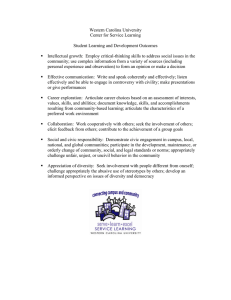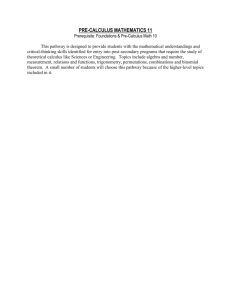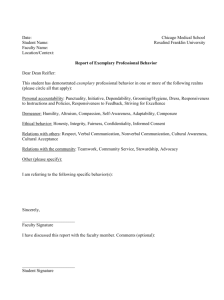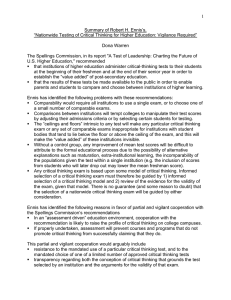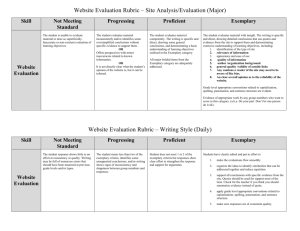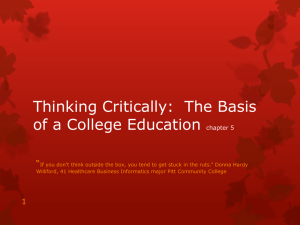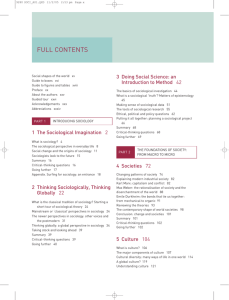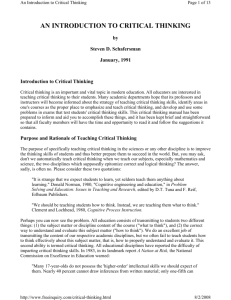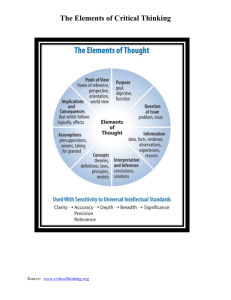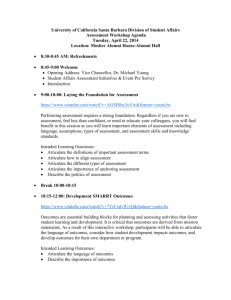Abstract The purpose of this study was to determine to what extent
advertisement
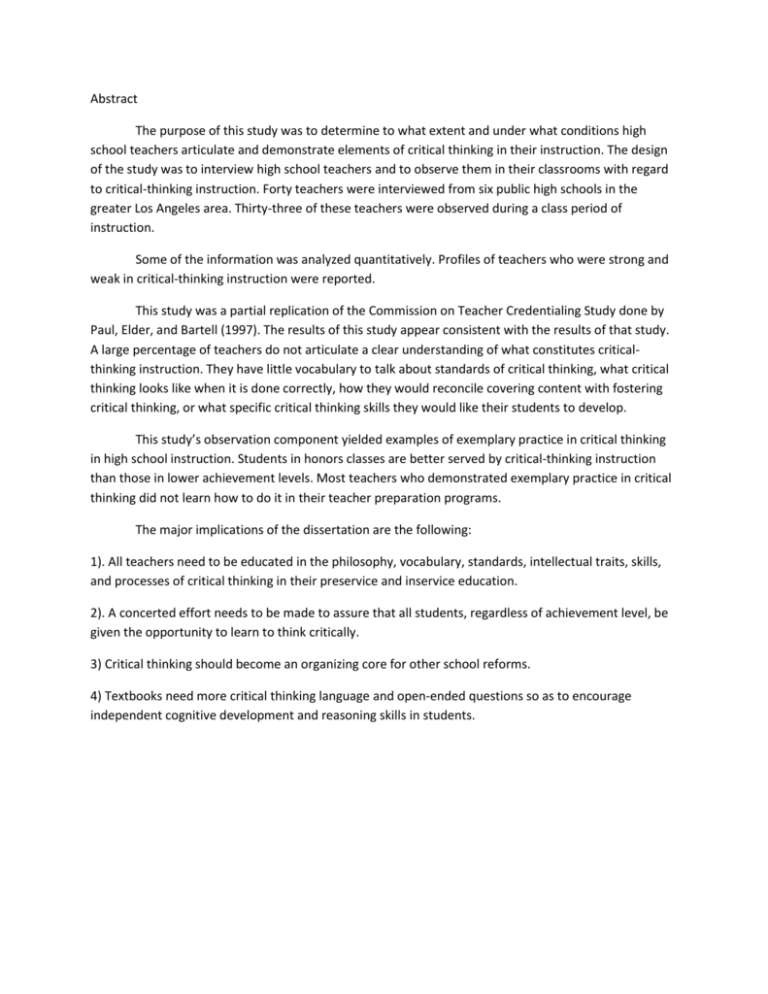
Abstract The purpose of this study was to determine to what extent and under what conditions high school teachers articulate and demonstrate elements of critical thinking in their instruction. The design of the study was to interview high school teachers and to observe them in their classrooms with regard to critical-thinking instruction. Forty teachers were interviewed from six public high schools in the greater Los Angeles area. Thirty-three of these teachers were observed during a class period of instruction. Some of the information was analyzed quantitatively. Profiles of teachers who were strong and weak in critical-thinking instruction were reported. This study was a partial replication of the Commission on Teacher Credentialing Study done by Paul, Elder, and Bartell (1997). The results of this study appear consistent with the results of that study. A large percentage of teachers do not articulate a clear understanding of what constitutes criticalthinking instruction. They have little vocabulary to talk about standards of critical thinking, what critical thinking looks like when it is done correctly, how they would reconcile covering content with fostering critical thinking, or what specific critical thinking skills they would like their students to develop. This study’s observation component yielded examples of exemplary practice in critical thinking in high school instruction. Students in honors classes are better served by critical-thinking instruction than those in lower achievement levels. Most teachers who demonstrated exemplary practice in critical thinking did not learn how to do it in their teacher preparation programs. The major implications of the dissertation are the following: 1). All teachers need to be educated in the philosophy, vocabulary, standards, intellectual traits, skills, and processes of critical thinking in their preservice and inservice education. 2). A concerted effort needs to be made to assure that all students, regardless of achievement level, be given the opportunity to learn to think critically. 3) Critical thinking should become an organizing core for other school reforms. 4) Textbooks need more critical thinking language and open-ended questions so as to encourage independent cognitive development and reasoning skills in students.
